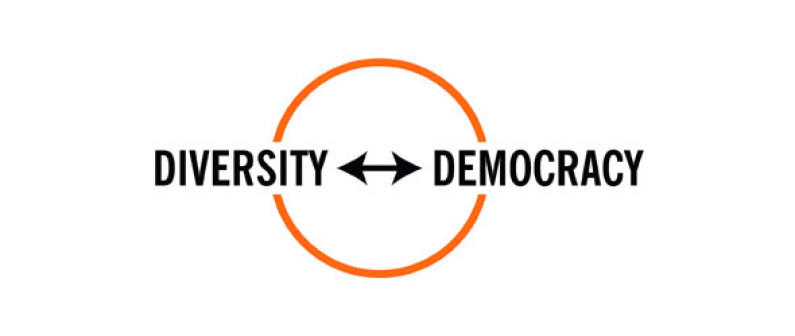
LEONID R. SYKIAINEN*
Compatibility between Islamic and modern democratic liberal values is not more than theoretical ground to combine the both for success of political reforms in the Muslim world. It will be possible only through the dialogue of different cultures and civilizations. In this respect Fethullah Gülen underlines that for centuries the civilizations of the East and the West existed separately from each other. This separation was based on the fact that the former retired from pursuits of intellect and science, while the latter retired from spirituality, metaphysics, and eternal and invariable values. But now the whole situation has changed. Modern means of communication and transportation have transformed the world into a large global village. So, those who expect that any radical change in a country will be determined by that country alone and remain limited to it are unaware of current realities. This time is a period of interactive relations. Nations and peoples are more in need of and dependent on each other, a situation that causes closeness in mutual relations (Gülen 2004:230).
More precisely Fethullah Gülen stresses that people must learn how to benefit from other people’s knowledge and views, for these can be beneficial to their own system, thought and world. Especially they should always seek to benefit from the experiences of the experienced (Unal and Williams 2000:149). This position opens the way for the Muslim world to benefit from the modern Western democratic patterns.
Regarding Huntington’s claim about the clash of civilizations, Fethullah Gülen considers that rather than being realistic evaluations regarding the future, these types of claims seem to be determining new goals in an attempt to influence public opinion. Actually, up until now, conflict is something that is desired by certain power centers. The masses have been put on alarm against a frequently conjectured and feared enemy. This enemy is more imaginary than real. It is in this manner that the masses have been prepared for every kind of war.
On the contrary, Islam is strictly against disorder, treachery, conflict, and oppression. Islam means peace, security and well-being. Thus, in a religion based on peace, security, and world harmony, war and conflict are negative aspects. In exceptional cases there is a right to self-defense but this can be done only according to certain principles. Islam has always breathed peace and goodness. Islam considers war as a secondary event. Rules have been placed in order to balance and limit it. For example, Islam takes justice and world peace as a basis: “Let not the hatred of others to you make you swerve to wrong and depart from justice” (Al-Ma’ida 5:8).
In this respect, Fethullah Gülen states that tolerance and dialogue should be represented everywhere in the best possible way and should be an example to the whole world. Such an example will encourage people to come together, to gather round the same basic human values and, God willing, humankind will live one more spring before seeing the end of the world (Gülen 2004:257). Covering this issue from the other side, Fethullah Gülen points out: “I don’t believe there’s going to be a clash between cultures or civilizations. If some people are planning such thing based on their current dreams and making claims on this subject, and if such a wave has risen and is on its way, then before we suffer such a clash, let’s put a bigger wave in front of it and break their wave” (Unal and Williams 2000:189).
At the same time Fethullah Gülen sees diversity and pluralism as a natural fact. Even though the consideration of the world as a village becomes firmer and more prevalent over the course of time, different beliefs, races, customs, and traditions will continue to cohabit in this village. Each individual is like a unique realm unto himself or herself. Therefore the desire for all humanity to be similar to one another is nothing more than wishing for the impossible. For this reason, the peace of this (global) village lies in respecting all these differences, considering these differences to be part of our nature and in ensuring that people appreciate these differences. Otherwise, it is unavoidable that the world will devour itself in a web of conflicts, disputes, fights, and the bloodiest of wars, thus preparing the way for its own end (Gülen 2004:250).
Gülen wants those differences to be admitted and professed explicitly. That is why he is an adamant supporter and promoter of interfaith dialogue. In his view, a believer must communicate with any kind of thought and system. Fethullah Gülen points out that the dialogue has now expanded to wide regions of the world. In general, the results – he believes – have been positive. At the same time he is not optimistic about the present contribution of the Muslim world into this dialogue and does not suppose that Muslims will be able contribute much to the balance of the world in the near future. Till now they couldn’t solve the problems of the world. Perhaps it could be achieved in the future (Gülen 2004:186). At the same time Fethullah Gülen puts forward the leading principles of such dialogue, which is a must today. The first step in establishing it is (I) forgetting the past, (II) ignoring polemical arguments, and (III) giving precedence to common points, which far outnumber polemical ones (Unal and Williams 2000:244-245).
Source:
This is a section from Prof. Sykiainen’s paper titled “The Relevance of Fethullah Gülen’s Thoughts for Democratic Reforms in the Muslim World”, which was presented at the International Conference on Peaceful Coexistence: Fethullah Gülen’s Initiatives in the Contemporary World, held at Erasmus University, Rotterdam, The Netherlands on 22-23 November 2007. Click here to download conference proceedings.
Leonid R. Sykiainen: Professor and Chair of Theory of Law and Comparative Law, School of Law, State University-Higher School of Economics, Moscow, and (from 2000) Professor of Institute of Asian and African Countries, Moscow State University. Prof. Sykiainen is the author of more than 160 learned works on Islamic law and comparative legal studies.
Tags: Democracy | Dialogue |Related Articles

Fethullah Gülen: ‘I deplore and reject any coup, anti-democratic attempts’
I condemn and reject any coup whatsoever. I deplore and reject any coup attempt as well. I would raise my arms and would stop them saying that "this…

Gülen, Hizmet, the state and the AKP
The questions such as “What does the Hizmet movement want from the state?” “Why has Gülen been determinedly encouraging his sympathizers to accept state jobs?” and “Why are…

Differences Should Not Lead to Separation
Dr. Saribay: Fethullah Gulen clearly shows that Islam can have different interpretations. In the coming days, there is going to be a settling of accounts between populist and…
